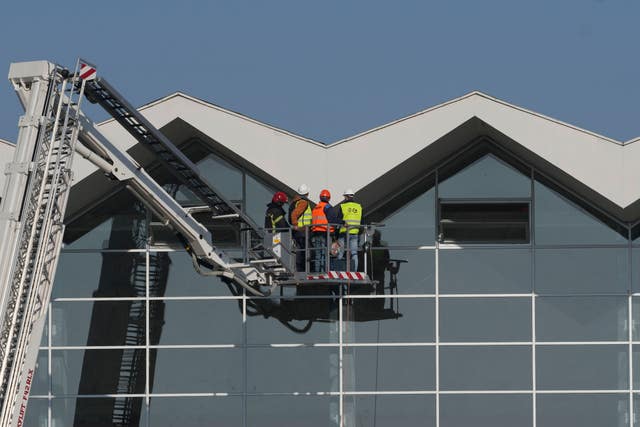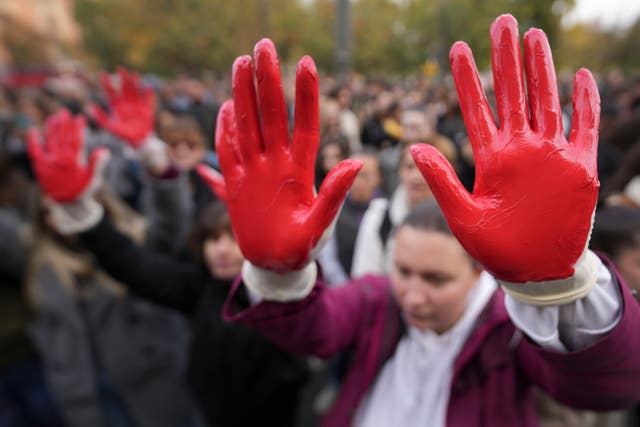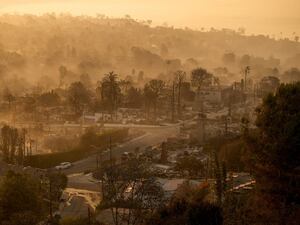Scuffle in Serbian parliament amid accusations over fatal station roof collapse
The collapse in Novi Sad killed 15 people.

Scuffles and fistfights between the ruling party and opposition politicians broke out in Serbia’s parliament on Monday, weeks after a deadly rail station roof collapse that ignited tensions in the Balkan state.
The opposition wanted to discuss who was responsible for the collapse, which killed 15 people at the station in the northern city of Novi Sad on November 1, while governing officials, who have a majority in Serbia’s legislature, sought to adopt a bill on next year’s state budget.
Scuffles erupted when the two sides tried to grab each other’s banner.
Serbia’s parliament speaker Ana Brnabic was quick to accuse the opposition of wanting to come to power by force with help from outside.
“There is not a hint, not a grain of doubt that these are people who are well organised, who were trained quite well, I believe paid well, to create chaos in Serbia and destabilise our country,” she said.

“I want to reassure the citizens and tell them that we will respond to their rudeness, rudeness and arrogance with even more work in the future,” he said.

Opposition leader Dragan Djilas said the speaker had “shut down” the parliament by “refusing to allow a debate on who’s responsible for the rail station tragedy”.
“She started with that when she refused to put on the agenda the request of more than 80 members of the opposition for a debate on confidence in the government because of the murder and crime in Novi Sad,” Mr Djilas said.
The collapse of the concrete roof raised tensions across the Balkan country, fuelling widespread anger toward the government and protests.
The rail station, a major hub, was recently renovated as part of a Serbian-Chinese partnership.
Critics allege that corruption, poor oversight and inadequate construction work contributed to the tragedy.
The collapse became a flashpoint for broader dissatisfaction with Serbia’s authoritarian rule, reflecting growing public demands for transparency while the country undertakes large infrastructure projects, mostly with Chinese state companies.





